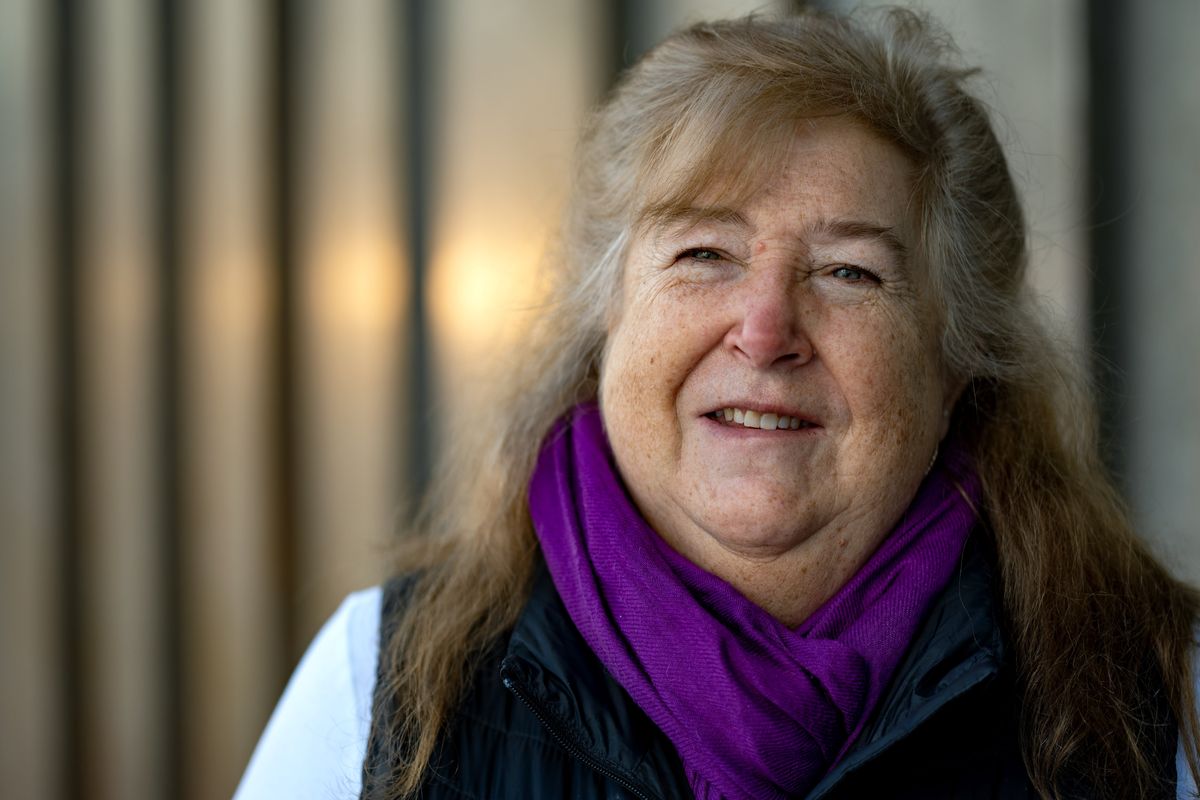Special educators in Spokane Public Schools remain dedicated to learning during COVID-19 pandemic

For teacher Kelli Nygren, the biggest rewards are the ones she shares with students and her families.
A special education teacher at Salk Middle School, Nygren has worked for more than three decades with some of the most medically fragile students in Spokane.
“I want to help these kiddos be able to show off their skills and be a part of the world,” Nygren said.
The challenges are enormous, especially during the pandemic. But so are the rewards.
A few years ago, one of her nonverbal students had struggled to communicate in class. But at the parent-teacher conference, the boy used a device to spell out the words “I love you, mom.”
“I had never seen that before, and it was beautiful, because he had never done that before, told her that he loved her,” Nygren recalled.
“She cried, I cried, we all cried,” Nygren said.
That’s life in the MHOH (Multiple Handicapped/Orthopedically Handicapped) program at Spokane Public Schools.
Part of the district’s special education offerings, the MHOH program serves students with severe to profound intellectual disabilities and significant physical impairments.
These programs focus on functional communication, cognitive development and motor skill development. Students are involved in a wide variety of school programs and activities.
While Nygren handles middle schoolers, Dale Alexander works with older students at Ferris High School, and a team at Garfield Elementary takes care of younger children.
All are passionate about their work, and they haven’t wavered through the constraints of the pandemic. Because most of the students are unable to wear a mask, teachers and aides must take extra precautions, including higher-grade masks, face shields and gloves.
The latter must be changed each time the teacher deals with a new student.
Nygren and Alexander have dealt with those realities long before most teachers, after the district decided to bring special education students back to class in the fall of 2020.
Each night, both teachers had to clean and disinfect their rooms, including every flash card. That too was worth it, Nygren said.
“These kids, especially, need that social piece,” she said.
That dedication hasn’t gone unnoticed.
“I have been so impressed with their care and compassion for students and staff, especially when they returned to in-person early in the fall of 2020 before others did,” said Becky Ramsey, director of special education for the district.
“They have always had safety for their students and paraeducators at the forefront of their minds,” Ramsey said. “They have developed creative ways to deliver instruction, meeting each student and family where they are at.”
At Ferris, those meetings happen in Alexander’s second-floor room. Large enough to accommodate two Hoyer lifts, a mobility tool to help lift students with physical disabilities, and a large central table, it also has desks along the window for specialized activity.
“We need open space because all the kids are in wheelchairs,” Alexander said.
For that, Alexander thanks the support he’s received from the district as well as the Ferris PTG, whose annual Ham on Regal show has raised funds for items not supplied by the district.
Alexander found his calling in his late 20s, after being laid off from his warehouse job. After earning degrees at Eastern Washington and helping out at a special needs program at the Libby Center, he “fell in love with the work.”
“It’s rewarding in some ways and frustrating in others, because the students take a long time to teach,” said the soft-spoken Alexander, who started at Ferris in 2009.
“Patience is everything in here, along with being nice – that’s the only rule we have in this class,” Alexander said. “If you’re being nice you’re probably being patient.”
For Alexander, patience is rewarded every day.
“These kids, there’s no more genuine people in the world,” Alexander said.
They’re also more capable than people give them credit for, said Nygren, who’s seen many former students go on to fulfilling jobs.
“Because of their appearance, they are sidelined,” Nygren said. “But these kids really have a lot to offer, and they can teach me as much as I can teach them.”